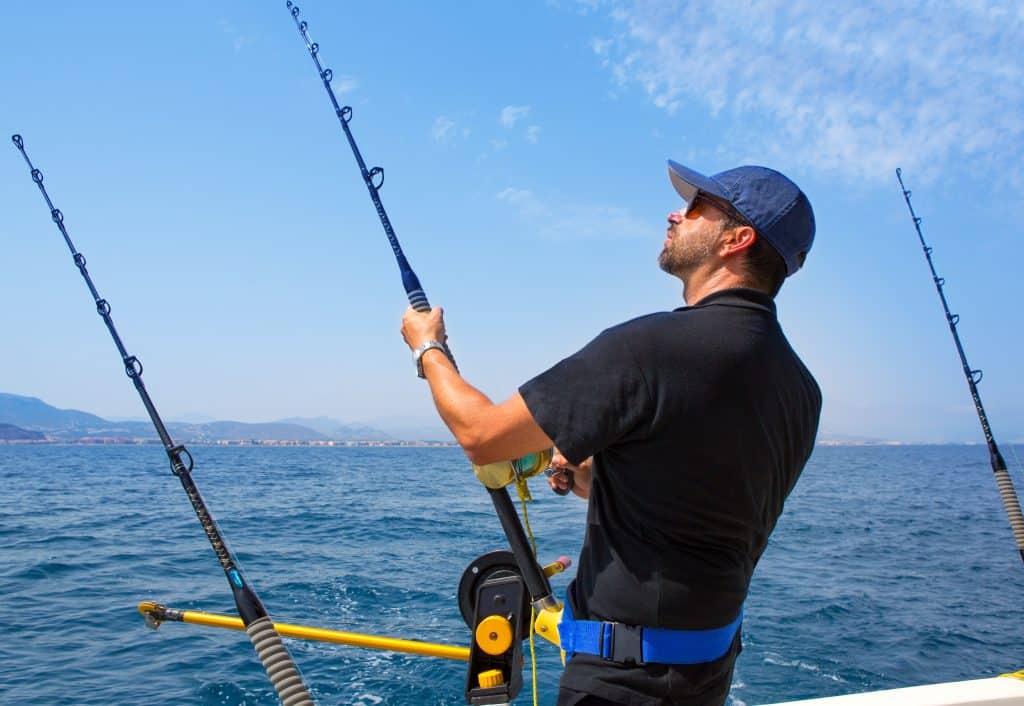Sports
Is fishing a sport? Exploring the debate

Fishing has been a popular activity for centuries, enjoyed by millions of people around the world. However, the question of whether fishing is a sport continues to spark debate.
This article explores the various aspects of fishing, examining arguments for and against considering it a sport, and ultimately aims to answer the question: Is fishing a sport?
Definition of a sport
To determine if fishing is a sport, it’s important to understand the general characteristics that define a sport. Typically, a sport involves:
- Physical activity: A significant level of physical exertion and skill.
- Competition: Organized competitions or contests with rules and objectives.
- Skill development: The need for practice and mastery of specific skills.
- Strategy: The use of tactics and strategies to gain an advantage.
Common sports examples
Examples of activities universally recognized as sports include football, basketball, tennis, and swimming. These activities clearly demonstrate the core characteristics of sports, combining physical effort, competition, skill, and strategy.
The case for fishing as a sport
Fishing requires a variety of physical skills and exertion, especially in certain types such as fly fishing, deep-sea fishing, and competitive bass fishing.
- Casting and reeling: These actions require strength, coordination, and precision.
- Endurance: Fishing often involves long hours, sometimes in challenging weather conditions.
- Manual dexterity: Tying knots, handling equipment, and baiting hooks demand fine motor skills.
Competition
Fishing includes numerous competitive aspects that align it with other recognized sports.
- Tournaments: Fishing tournaments, such as bass fishing competitions, are widely popular and involve strict rules and significant prizes.
- Records: Anglers often strive to catch the biggest or most fish, competing for recognition and records.
Skill development and strategy
Fishing involves substantial skill development and strategic thinking.
- Knowledge of fish behavior: Successful anglers must understand fish habits, feeding patterns, and habitats.
- Techniques and tactics: Mastery of various fishing techniques, such as fly casting or trolling, is essential.
- Equipment selection: Choosing the right gear, bait, and lures requires knowledge and strategy.
The case against fishing as a sport
Many people view fishing primarily as a leisure or recreational activity rather than a sport.
- Relaxation and recreation: Fishing is often associated with relaxation, spending time in nature, and unwinding rather than intense physical exertion.
- Lack of physical intensity: Compared to sports like football or basketball, fishing may seem less physically demanding.
Accessibility and inclusivity
Fishing is accessible to a wide range of people, regardless of physical ability, which some argue makes it more of a pastime than a sport.
- Low physical barriers: Fishing can be enjoyed by people of all ages and physical conditions, including those with disabilities.
- Inclusivity: The inclusiveness of fishing contributes to its perception as a recreational activity.
Competitive fishing: A closer look
Competitive fishing, or sport fishing, is a highly organized and professional aspect of fishing that underscores its classification as a sport.
- Bassmaster classic: One of the most prestigious fishing tournaments, attracting top anglers from around the world.
- Professional anglers: Many individuals make a career out of competitive fishing, demonstrating the professional and athletic nature of the activity.
Rules and regulations
Competitive fishing adheres to strict rules and regulations, similar to other sports.
- Scoring systems: Tournaments often have scoring systems based on the size and number of fish caught.
- Regulated equipment: Rules about the type of equipment and techniques used ensure fair competition.
Physical and mental challenges
Competitive fishing involves significant physical and mental challenges.
- Endurance and stamina: Long hours on the water in varying conditions test anglers’ endurance.
- Focus and concentration: Success in fishing requires sustained focus and mental sharpness.
Fishing in the olympics
Fishing has been considered for inclusion in the Olympic Games, further supporting its status as a sport.
- Demonstration sport: Fishing was featured as a demonstration sport in the 1900 Paris Olympics.
- Advocacy: There has been ongoing advocacy for fishing to be included in the Olympics, highlighting its competitive and athletic aspects.
Barriers to inclusion
Despite its competitive nature, fishing faces challenges in being recognized as an Olympic sport.
- Standardization: The diverse nature of fishing styles and environments makes standardizing the sport difficult.
- Perception: Changing the widespread perception of fishing as a leisurely pastime remains a significant hurdle.
Is fishing a sport?
The debate over whether fishing is a sport centers on its combination of physical activity, competition, skill development, and strategy. While fishing may lack the intense physical exertion of traditional sports, its competitive aspects, organized tournaments, and the skill required clearly align it with recognized sports.
Competitive fishing, in particular, embodies many characteristics of professional sports, including rigorous rules, professional athletes, and significant physical and mental challenges.
Ultimately, whether fishing is considered a sport may depend on individual perspectives and the context in which it is practiced. For many, fishing remains a beloved leisure activity, while for others, it represents a serious and competitive pursuit.
Regardless of classification, fishing offers valuable opportunities for recreation, competition, and connection with nature, making it a unique and cherished activity. Also, here are some similar articles that you might find useful:
